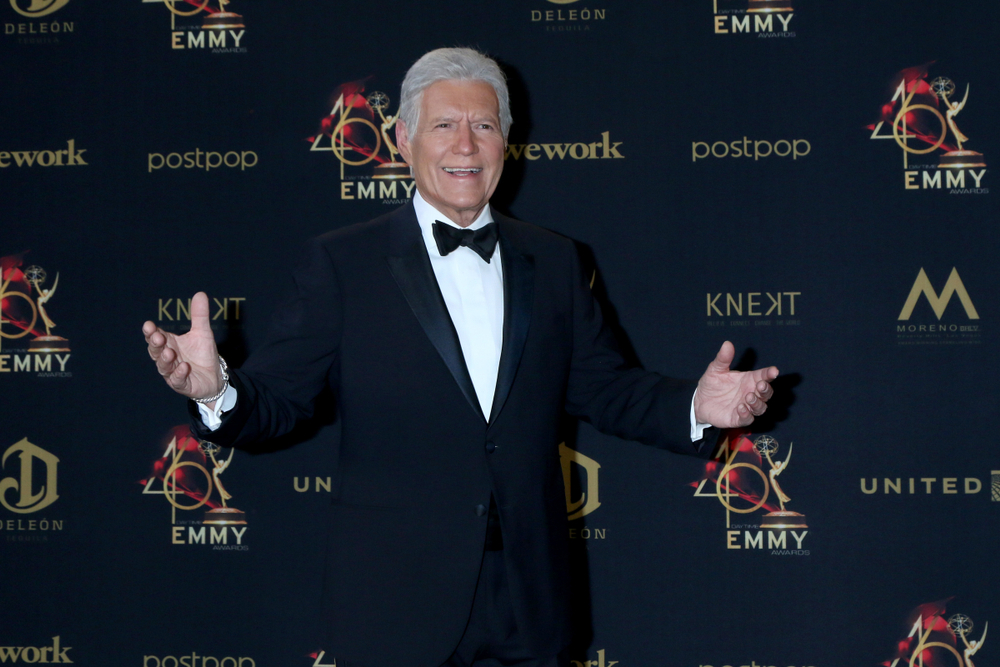Over the last week, my husband and I have been grieving the loss of one of our most steadfast companions, someone with whom we spent hundreds of hours over the years but had never actually met. Sadly, Alex Trebek, the longtime host of “Jeopardy!,” passed away on November 8, 2020, after a battle with pancreatic cancer. Although new episodes of “Jeopardy!” will continue to air through Christmas and a new “Jeopardy!” host will eventually be named, we will sorely miss Alex, who made us smarter and helped us unwind each day after work.

ABC and the producers of “Jeopardy!” are to be commended for the way they rallied around Alex and supported his desire to continue working until the end of his life, even as his health deteriorated. Their actions serve as a valuable lesson for employers and illuminate the importance of three key principles:
1. Don’t make assumptions about your employees’ desire or ability to continue working.
According to the Equal Employment Opportunity Commission (EEOC), employees with cancer often face discrimination because of their supervisors’ and coworkers’ misperceptions about their ability to work during and after cancer treatment. Even when the prognosis is excellent, some employers expect that a person diagnosed with cancer will take long absences from work or be unable to focus on job duties.
Generally, an employer may ask an employee about the employee’s cancer or other disabling condition when the employer has a reasonable belief that the employee will be unable to safely perform the essential functions of his or her job. In addition, an employer may inquire about an employee’s condition to the extent the information is necessary:
- To support the employee’s request for a reasonable accommodation;
- To verify the employee’s use of sick leave related to a disability (if the employer requires all employees to submit a doctor’s note to justify their use of sick leave); or
- To enable the employee to participate in a voluntary wellness program.
In all other circumstances, employers should refrain from making assumptions about an employee’s desire or ability to continue working. Additionally, when managing employees with a cancer diagnosis or other serious health issue, it is important to separate assumptions and stereotypes about an employee’s condition from the employer’s performance expectations. In Alex’s case, his performance remained stellar for a year and a half after receiving a diagnosis of stage four pancreatic cancer, and he continued filming new episodes of “Jeopardy!” until 10 days before his passing.
2. Accommodate an employee’s need for leave or other accommodation.
The Americans with Disabilities Act (ADA) requires employers to provide adjustments or modifications—called reasonable accommodations—to enable applicants and employees with disabilities to enjoy equal employment opportunities, unless doing so would cause significant difficulty or expense (undue hardship). Not all employees with cancer or other disabilities will require an accommodation or require the same accommodations, so employers must evaluate the need for an accommodation on a case-by-case basis. Thankfully, Alex was able to take leave in order to receive and recover from cancer treatment, and he was able to take breaks during taping as needed, which enabled him to continue working until the end of his life.
3. If necessary, plan (respectfully) for an employee’s transition out of the workplace.
As a general rule, employers need to engage in transition planning to keep an organization on track and ensure its workforce can meet the demands of its business operations. It is crucial, however, to navigate this issue delicately, especially when a key employee has a terminal illness. Although employers should not expressly ask employees when they plan to leave the workforce, employers do have the right to know if an employee intends to remain with the organization for a certain period of time. If the employee indicates he or she does plan to continue working, an employer must not question the employee further or make any value judgments or suggestions about why the employer believes the employee should leave the workforce sooner.
Ultimately, all of us will transition out of the workforce for one reason or another. As you plan for your organization’s future, be respectful of workers, don’t make assumptions, and be careful not to encourage or suggest that an employee leave the workforce before he or she is ready. I am grateful that the producers of “Jeopardy!” did not try to replace Alex before he was ready, though it appears the show did take some preliminary steps toward ensuring a smooth transition.
For example, the show hired Ken Jennings, perhaps the most well-known contestant in the show’s history, as a consulting producer, and many believe he will be groomed to take over as host. Several other famous journalists, game show hosts, and celebrities have also been lobbying ABC for the position. Importantly, these discussions have been held discretely and respectfully, and Alex was never forced out of his role or encouraged to stop working while these discussions were happening behind the scenes.
For 37 years, Alex was a comforting voice, a champion of intellect, and a vital part of my everyday life. He was heroic, witty, and the epitome of class until the very end, and he will be greatly missed by his legion of fans around the world. We love you, Alex. Thanks for the memories.


